In light of recent police killings like those of Alton Sterling and Philando Castile, the Portland International Socialist Organization held an event focusing on the history of police brutality and possibility for reform. August 11, the event—which took place in Portland State’s Smith Memorial Student Union—primarily consisted of moderated discussion between attendees regarding grievances with the U.S’s police institution and possible solutions.
The Vanguard interviewed organizers and attendees of the event.
Sarah Levy, a member of the ISO in Portland, gave an hour-long talk about the history and background of police brutality at the start of the event. The ensuing discussion was lively and energetic, according to her, something that she attributed to attention brought on the subject by recent Black Lives Matter protests.
“I think the event went really well,” Levy said. “There was a pretty full room around, I didn’t actually count, like 50 to 70 people probably.”
One of Levy’s main arguments during her talk was that police forces across the country can not readily be fixed because—according to her—they play the role of oppressing the working class.
Despite that, disarming, defunding and demilitarizing the police were some of the immediate reforms that Levy thought might prove effective in cutting down on the scope of police brutality. Putting that same funding towards public institutions like mental health facilities could decrease the likelihood of dangerous physical conflicts happening between mentally ill people and the police, she added.
“While we say that change has to happen in the streets and in movements and organizing, I think these meetings behind figuring out how are we organizing and what are we demanding is critical.”
Though not a student at PSU, Kevin Harvey was introduced to the ISO at a Black Lives Matter event in downtown Portland and since decided to attend some of their meetings on campus. Topics like police brutality and reform are important to discuss, according to Harvey, in spite of—and because of—how sensitive of issues they can be.
“We as people, especially black and brown people…we’re so dehumanized when something actually happens to one of us, they’ll be like ‘well he shouldn’t have been selling cigarettes’ or ‘he shouldn’t have been playing basketball so late,'” Harvey said.
While growing up in Englewood, Chicago, Harvey and his friends were routinely handcuffed and questioned by police even while walking home from school in their school uniforms, according to him.
“You see people out here, not even just me, all colors and all races, being harassed by the people who are supposed to protect us,” Harvey said.
Though not all police officers are bad, the current system makes it difficult for officers to hold each other accountable and address problems like racial profiling and police brutality, he added.
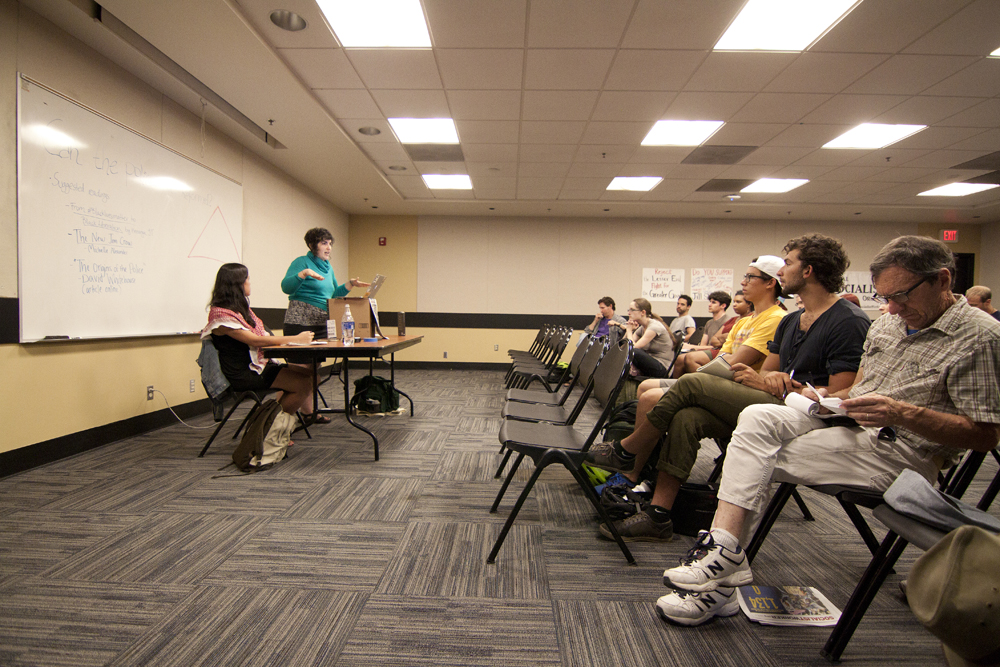
Nicole Bowmer, a PSU alumna with a BA in sociology and another member of the Portland ISO, was another participant in the event’s discussion.
“I thought our meeting was great,” Bowmer said. “I thought the discussion was great, it was great to have people share their personal experiences.”
While she was a student at PSU, Bowmer researched the experiences of black youths in Portland with police discrimination.
“At first it was ‘have you ever been either intimidated or physically assaulted by the police,'” Bowmer said. “Because of the looks that they were giving us, it felt like they didn’t actually believe that we were even from this country at first, because they couldn’t believe that we would start it off like that.”
As a result, she started asking them the age at which they first encountered these behaviors from police officers.
“Every single one said I was 12, 13 or 14,” Bowmer said. “Thinking back to my own years of being 12, 13, or 14, I don’t ever remember seeing cop cars, much less actually having interactions with police, much less—as one kid described—having a police [officer] stick his hand down his pants and stick his thumb in his anus.”
Bowmer said she was thankful that her sociology degree gave her a chance to look into the conditions in which other people live.
One key point she saw in the event’s discussion was the idea that working to alleviate conditions of poverty could negate the need for policing.
“It’s not a matter of not having money, I mean there’s plenty of wealth,” Bowmer said. “It’s not a matter of not having the desire or the ingenuity or the resourcefulness. We have all of that, it’s really a matter of who gets a say in the priorities with the money that we do have.”

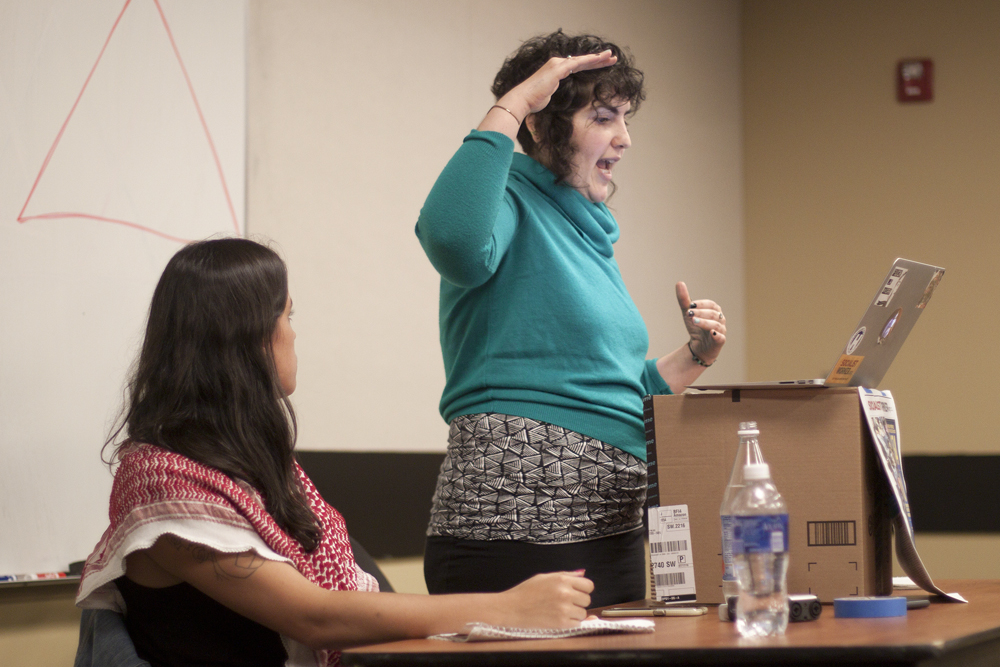
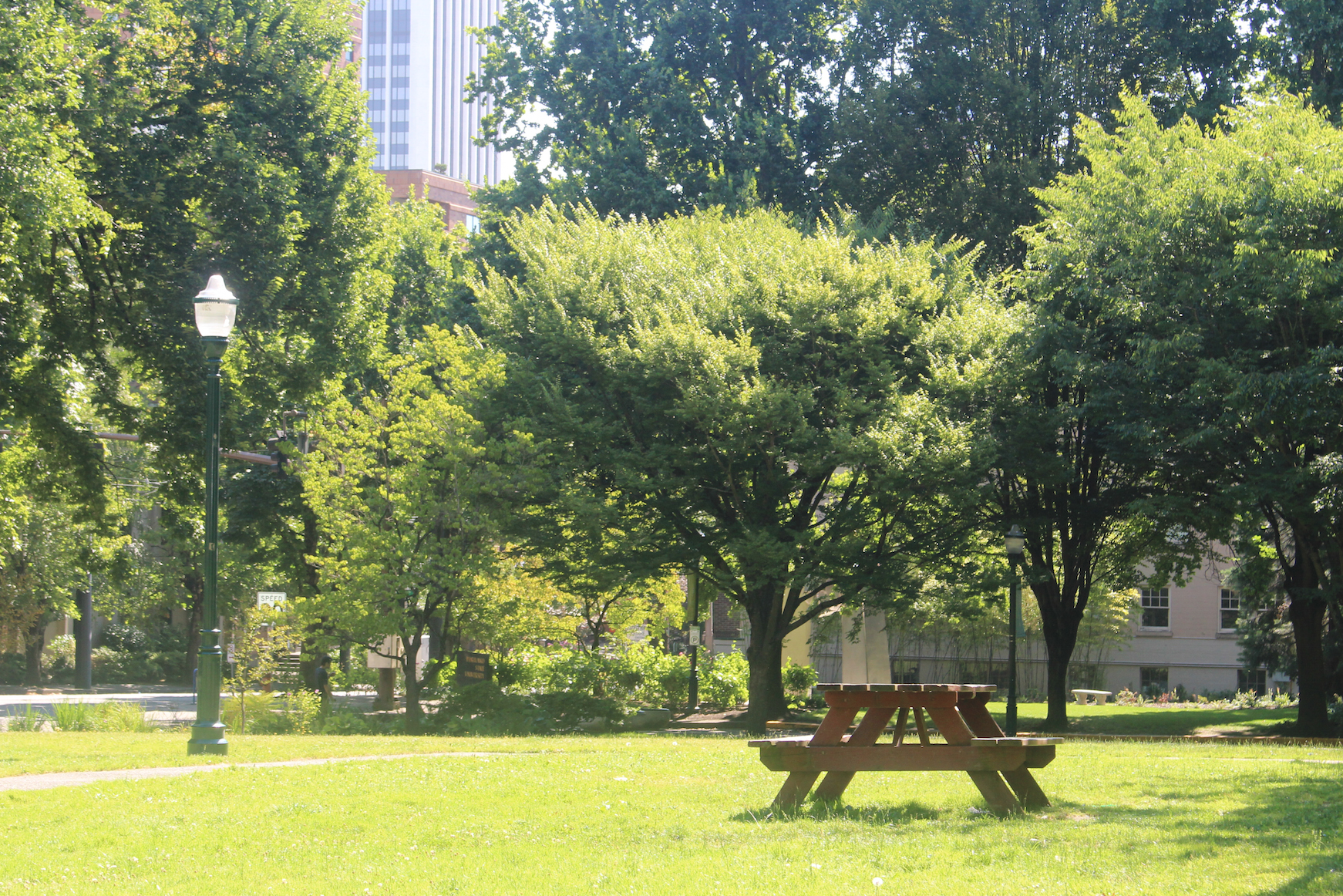
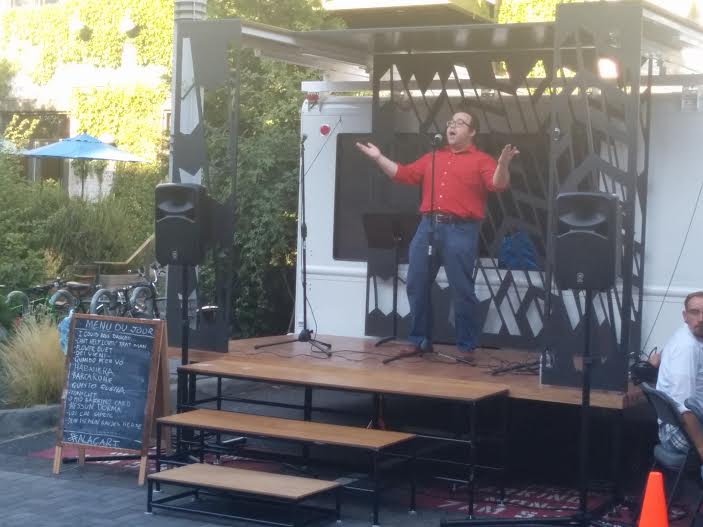

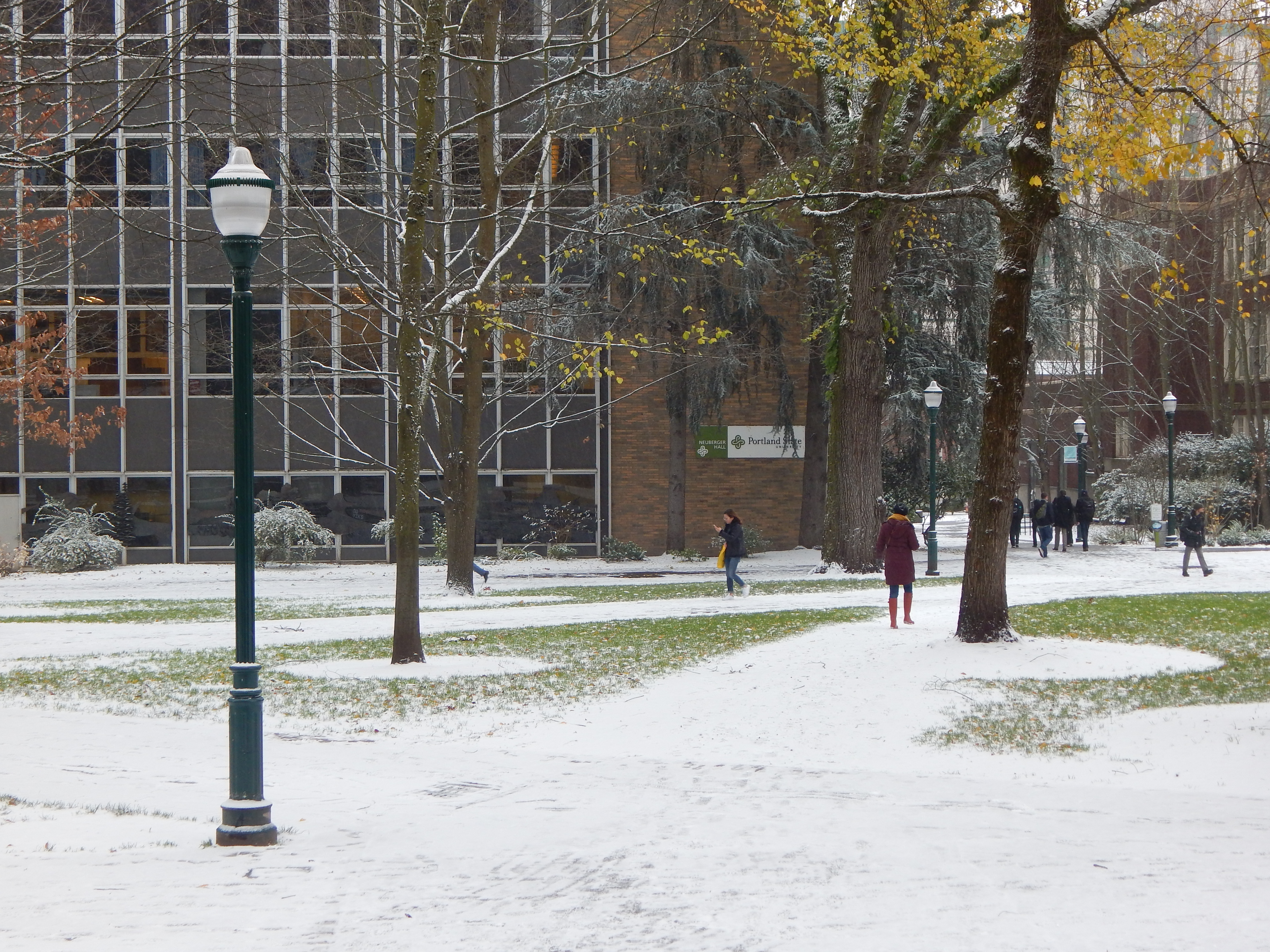

Prefacing this whole conversation with a statement like this one – “One of Levy’s main arguments during her talk was that police forces across the country can not readily be fixed because—according to her—they play the role of oppressing the working class.” Immediately narrows the scope of Levy’s argument. Levy claims to have other reforms to help fix the problem of police brutality and injustices but boils down her whole argument repeatedly to this single conclusion – nothing can be done – which is absolutely counter to what she is supposedly trying to accomplish through these discussions.
While there is no doubt that policing policies need to be looked at, one vary obvious fact seems to be lost in this discussion – there will always be a criminal underworld element regardless of economic conditions or other relevant factors.
While individual accounts and injustices described in this article may be based in reality – systemic racism against minority communities in Portland and by police in general does not exist, and if it does please point it out directly so we can all agree and call the racists what they are.
Source:
http://www.dailywire.com/news/7347/7-statistics-show-systemic-racism-doesnt-exist-aaron-bandler
(if you don’t like this source then look at the sources within the article.)